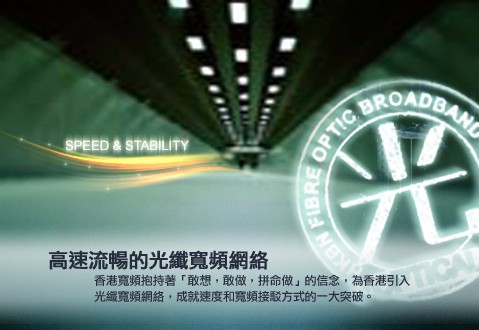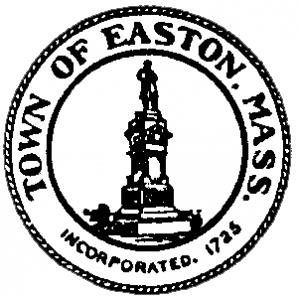 Verizon FiOS today adds television to its lineup of services in several suburban towns in the Syracuse area, as competition heats up in central New York for cable, telephone, and broadband service. But the incumbent cable operator, Time Warner Cable, says it’s not worried by Verizon’s arrival, and a company spokesman predicts no price war will result.
Verizon FiOS today adds television to its lineup of services in several suburban towns in the Syracuse area, as competition heats up in central New York for cable, telephone, and broadband service. But the incumbent cable operator, Time Warner Cable, says it’s not worried by Verizon’s arrival, and a company spokesman predicts no price war will result.
Eight communities in the Syracuse area will now be able to choose Verizon FiOS television service in addition to broadband and phone service: Camillus, Clay, Cicero, DeWitt and Salina, and the villages of East Syracuse and North Syracuse in Onondaga County, and the town of Fleming in Cayuga County.
The arrival of television service is important for Verizon, because it lets them compete head-on with incumbent cable operator Time Warner Cable that already offers bundled packages of services, typically known as a “triple play” in the industry — telephone, cable-TV, and broadband.
Chris Creager, Verizon’s president of Northeast operations, claims competition for cable television in central New York will result in better service at lower prices.
“When we enter a market, customers win,” Creager said. “Usually, cable companies are more receptive to looking at prices.”
Time Warner Cable downplayed the competitive threat Verizon could pose to their operations in the region.
In a statement echoing the sentiment Time Warner Cable has expressed in most of the communities where FiOS competes with them, spokesman Jeff Unaitis said Time Warner Cable already has an advanced cable network and has experience delivering cable television service to Syracuse-area residents that Verizon lacks. Competition is nothing new to Time Warner Cable, he said, noting the company has faced satellite television competition for years. Unaitis also predicts no significant price cuts as a result of Verizon’s all-fiber FiOS system arriving in town.
Indeed, evidence suggests that Verizon’s FiOS service does not result in dramatic savings for consumers, with one significant exception.
New customer promotions often offer significant price savings, particularly for customers who sign contracts to remain with providers for one or two years, and choose bundled packages of multiple services. Central New York customers signing up for Verizon FiOS for at least two services can receive a $150 gift card. Customers choosing their “triple play” will receive $30 off their monthly bill for six months.
Once the promotional offers expire, so do most of the savings, unless a customer threatens to switch providers. That often brings a renewal of their promotional package price for an extended period, although some providers limit the number of times a customer can take advantage of a promotion. For consumers trying to optimize savings, that can start a ping-pong relationship with providers, as customers sign up for a promotion and then cancel service when it expires, taking their business to the other player in town.
Competition does often bring improved service, even when savings are elusive. Broadband service in particular often benefits, as consumers enjoy faster speeds with fewer limitations in communities with FiOS as one of the competitors.
In Syracuse, Time Warner Cable has adjusted speeds upwards for its Road Runner service, in advance of Verizon FiOS’ arrival. In contrast, speeds in Rochester, a city with no prospect for Verizon FiOS competition, has not seen a speed increase for standard service in several years. In New York City, a system upgrade to DOCSIS 3 technology has allowed the cable company to offer a premium 50Mbps service tier. The Syracuse Post-Standard explored the competition angle, and what central New York residents might expect to come from it:
Competition from FiOS, which offers Internet download speeds of up to 50 megabits per second, may push Time Warner Cable to deploy available technology to match those speeds, said Thomas W. Hazlett, a law and economics professor at George Mason University and former chief economist of the Federal Communications Commission. Time Warner Cable recently upgraded its New York City network to offer a 50-megabit option, compared with the maximum 15-megabit speed in Syracuse.
“If it’s like elsewhere, you’re going to see Time Warner respond,” Hazlett said. “They will increase speeds.”
Likewise, Verizon and Time Warner Cable will push each other to offer better channel lineups, better picture quality, on-demand programming and novel services, said Jeffrey Kagan, an independent telecommunications analyst in Atlanta. Prices also will be lower that they would be without competition, but don’t expect a big drop, he said.
The newspaper explored what each company offers customers:
$110 per month: Includes unlimited phone calls in North America; Internet at 15 megabits per second for downloads, 5 megabits for uploads; 255 standard-definition TV channels and seven high-definition channels.
$120 per month: unlimited phone calls in North America; Internet at 25 MBPS for downloads, 15 MBPS for uploads; free Wi-Fi access on nationwide network of hotspots; 275 standard-definition TV channels and 70 high-def channels.
$130 per month: Same package as $120, but with Showtime, 16 more standard-def channels and eight more high-def channels.
Creager said Verizon will lock in the price for two years.
Time Warner Cable’s regular rate for its “All the Best” triple play is $135.50. But new customers can get an introductory rate of $115 for a year, including free use of a digital video recorder for six months, according to the company’s Web site. The service includes unlimited phone calls in North America; Internet downloads at 10 megabits per second, uploads at 1 MBPS; 214 standard-def TV channels and 70 high-def channels.
Time Warner also offers a $100-per-month introductory package that includes fewer TV channels — 154 standard-def and seven high-def.
Several TV news video reports, and a Verizon video press release can be found below the page break.


 Subscribe
Subscribe





